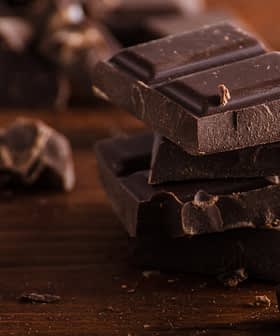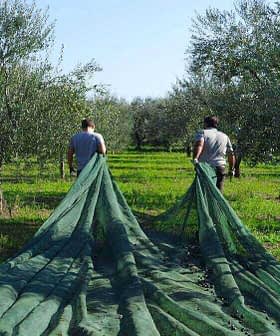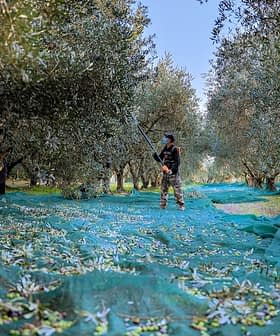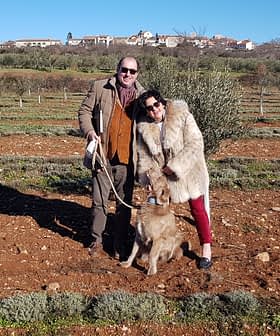Recently, Dalmatia, the largest olive-growing region in Croatia, hosted the Taste Extra Vergine project. The County of Šibenik-Knin organized the event and held it in the Adriatic Business Center. During the event, extra virgin olive oil producers who won awards at the NYIOOC World Olive Oil Competition in 2021 and 2022 presented their olive oils and discussed the state of the olive oil industry in Dalmatia.
See Also:The Farmer Behind the Dramatic Rise of Dalmatian Olive Oils on the World StageVišnja Marasović, deputy head for the economy, tourism, agriculture, rural development and EU funds, opened Taste Extra Vergine. Representatives of local institutions, restaurateurs and citizens attended the event. The prefect of Šibenik-Knin County, Marko Jelić greeted everyone present.
“Our county can really offer adequate support through tourism, the tourist community, but also through our systems and the regional development agency. Our mission is to secure as many funds as possible and to help you. You know that we participate in analyses, equipment and purchases, and I hope that there will be more and more of that,” said Prefect Jelić.

Prefect Marko Jelić
The program began with two panels. The first was titled “Can Dalmatian Olive Oil Become a Brand?” This panel included many important insights into the Dalmatian olive oil industry.
Award-winning olive grower, Domagoj Živković, moderated the first panel. A wide range of venerated guests populated it. These included Mira Lepur, director of the Šibenik-Knin County Development Agency; Ante Sladić, winemaker and olive grower from Plastovo near Skradin and member of the Vino Dalmacie Association and OLEA Sensory Analysis Association; Dušanka Kolar, local oil painter; Tomislav Filipović, food technologist and owner of NIR analiza d.o.o., who is also known as the olive oil doctor; and Ivica Vlatković, representative of the Zadar County oil producers.
“Šibenik-Knin county is in a great position because it has its own indigenous variety of olives — kravovica, and I think that this is a great advantage of this county because it is a variety that other counties do not have,” said Vlatković.
“In Croatia, we have about 6 million olive trees, and in terms of olive oil production, we are 24th in the world, so we can say that Croatia, in addition to its cultural and historical heritage and exceptional natural beauty, also stands out for its food, which includes our olive oils,” said Lepur.
Lepur also emphasized the connection between Croatian olive oil producers, who are still not sufficiently represented, and olive oil production at a regional level.

Next, the panel discussed the need to protect the authenticity of Dalmatian olive oil. The region’s government started working towards this goal a few years ago, but unfortunately, it was never completed.
They also discussed the need to connect public institutions with producers in the field. Producers in Dalmatia could use the support of many institutions, including advisory services, LAGs, HOK, HGK, local development agencies and, finally, European funding.
The olive growers on the panel expressed the possibility of developing a uniquely Dalmatian brand of olive oil and how to achieve that goal.
“Olive oil is a vegetable fat that is very important in terms of gastronomy. When we talk about pairing with olive oil, we have to know the flavors of the food, assuming that we also know the flavors of the oil, and then we pair the food with the oil, while with wine, it is the opposite because we pair the wine with the food. So, there are two roles of olive oil in gastronomy; preparing food with olive oil and pairing food with olive oil,” said Filipović.
In addition to the opening two panels, the Taste Extra Vergine project included an exhibition and a tasting of the NYIOOC 2021 and 2022 award-winning extra virgin olive oils from Šibenik-Knin County.
OPG Ante Urem, Sv, Ivan Tomislav Duvnjak, OPG Buntić, OPG Dušanka Kolar, Vinarija Birin, Ante Sladić, Pasika d.o.o. Miroslav Ivić, OPG Krešimir Uroda, OPG Vjeran Paić and OPG Laurent Domagoj Živković produced the award-winning oils present. Along with the tasting, special delicacies containing olive oil were also served.
In the afternoon, there were three educational sessions. One of the three sessions was titled “The Influence of Extra Virgin Olive Oil on Health” and held by Vlatković.
“Olive oil is not a targeted medicine, but it has a long-term, preventive and curative effect on the occurrence of many diseases,” said Vlatković.
He explained, “Only extra virgin olive oil possesses this power in its full profile because it contains unchanged natural active ingredients. Any olive oil that loses its freshness, and thus its original natural composition, has a health effect proportional to its remaining content of active and medicinal biological components.”
In the other two educational sessions, Nina Vuletin, biotechnologist and sensor analyst, revealed how professionals taste and evaluate olive oils and Ante Rupić, agronomist and olive grower, did a deep dive into olive oil.
Šibenik-Knin County’s press release for the Taste Extra Vergine project emphasized that people should consume olive oil daily (one soup spoon is recommended).
The press release emphasized olive oil’s several health benefits. These include reduced heart attack and stroke risk, less bad cholesterol in the blood, lowered blood pressure, reduced risk of ulcers and gallstones, decreased blood sugar concentration, and a more efficient pancreas. Olive oil has also been shown to have antiviral, antimycotic, antioxidant and antimicrobial properties.
Olive growers from the Šibenik area, especially Tomislav Duvnjak, were responsible for the success of the Taste Extra Vergine project. Two years ago, Dalmatian olive growers first entered the prestigious olive oil competition, NYIOOC. Their contribution to the overall success of Croatian olive oils is easy to see.
Croatia won a total of 49 medals at the 2020 NYIOOC. The following year, coinciding with the first entry of Dalmatian olive oil producers, the number of awards Croatia won rose to 87. This last year, Croatian olive growers won a record 96 medals, of which Dalmatian oil growers “collected” more than half. More precisely, olive growers from Dalmatia received 55 awards at the 2022 NYIOOC; 29 were gold and 26 silver.
“Last year we were fourth, this year third, right behind Italy and Spain,” remembered Duvnjak. He expects even better results at the 2023 NYIOOC.
“We have the quality, and if we are even more united than before, we can achieve an even better result at the World Olive Oil Competition in New York,” Duvnjak said.








